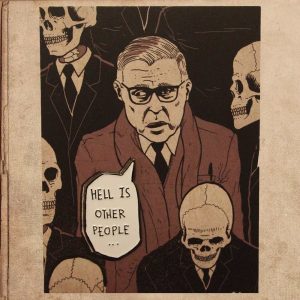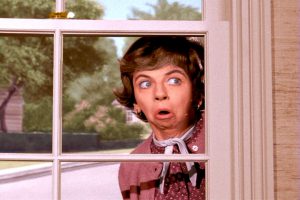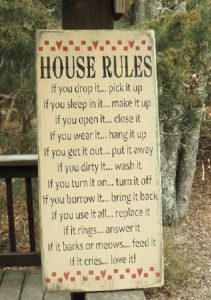Government takes many forms (monarchy, democracy, etc.) but they all come down to the same thing:
Other people you’d rather not have anything to do with.
Except that unlike ordinary people you’d rather have nothing to do with – and so don’t – government people have the power to make sure you cannot avoid having to deal with them. They are thus the enemies of society, which is people coming together freely to deal with one another in ways mutually agreeable, according to rules rather than laws.
Society is organic, natural. It arises in the form of marriages and families, friendships and similar arrangements, which are entered into voluntarily and can be left voluntarily as well. It is not perfect, of course. But it is free of the element of coercion – the threat of physical violence as the mechanism to compel association when you’d rather not – that makes government worse than imperfect.
Society is a form of contract that differs from government’s idea of contract – which is that you are bound by something you never agreed to, which manifest as laws you are required to obey and which you will be punished for if you do not, even if your only offense is that you did not obey the law (irrespective of any harm caused). In society, there are rules that people follow as a matter of course, as in the home of a friend you are visiting. Part of the reason you’re in your friend’s home being your unforced willingness to abide by “house rules” within his home.
If you choose not to abide by them, the only sanction is loss of your friend’s society – which is usually punishment enough to prevent such “offenses” from happening.
Arguably, a critical mistake made by those who attempted to “limit” government – as via the Bill of Rights that was incorporated into the American Constitution by men such as George Mason of Virginia, who were hugely doubtful that the Constitution would limit the power of the federal government it created – was to not include as a foundational expression of rights the inalienable right to freely associate.
And to articulate its usually unspoken corollary – the right not to.
These two are the essence of society and the antithesis of government. The latter cannot exist without denying them – while the former cannot survive if not respected.
It stopped being respected in America, officially, when the hero of American government – Abraham Lincoln – repudiated it with express and explicit violence. The events of 1861-1865 are almost always styled the “Civil War” or something less dishonest, such as the “War Between the States” but it was in fact a war against society, against the idea that human relationships ought to be based upon freedom of association as opposed to coercion.
It was not articulated well at the time, of course. Nor since that time. One often hears about “state’s rights” – a bizarre construction – but almost never is secession parsed down to its essential tenet, which is the right to not freely associate, when it no longer suits either of the two parties.
Marriages, friendships, business relationships (when they are honest) are all based on this tenet, which almost everyone agrees with. This latter is a fascinating thing, given that people tend to disagree – often vehemently – about government.
Yet few people believe that friendships ought to be forced; indeed, most people would agree that such a “friendship” is nothing of the kind. Similarly – and on the same principle – very few people would say that forcing people who do not like (or even know) one another to get married is reasonable and right. It is understood that a marriage not entered into willingly and lovingly is not a marriage at all – and that forcing people to remain married who do not wish to live together as man and wife amounts to assigning one of the parties to the “marriage” the status of chattel and to the other of its owner.
In our business dealings, we buy and sell on terms agreeable to both. There is no unwanted (by the parties involved) interference in the free exchange of goods and services. There is only the corrective mechanism of declining to exchange, by either party, when the terms of the exchange don’t suit both.
Society is built upon such natural, organic and non-coercive relationships – which are built and maintained on the basis of mutual agreeability. Tensions may arise but they can never percolate to the degree they do under government, because people are free to not partake of relationships – whether personal or business – that do not suit them, with no other justification necessary for ending them than exactly that.
Government negates that – via the assertion that you have no right to not associate, made by people who – in society – would quickly find that few if any would wish to associate with them, as almost no one likes a busybody or a bully.
Yet by the magic of calling such people “government,” busybodying and bullying are empowered and legitimized. The town pariah becomes a congressman and you are forced to deal with him because he has the power to make sure you do.
So ends the lesson in “government.”




